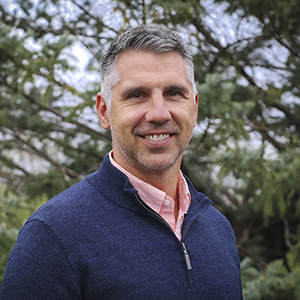The RCA’s restructuring team has published its final report, including ten recommendations that will be voted on at General Synod this June. An additional recommendation that involves a significant set of Book of Church Order amendments is part of the report of the Commission on Church Order. The restructuring team’s final report is available on the RCA’s website or as a downloadable PDF as it will appear in the General Synod workbook.
“The restructuring team faithfully wrestled with seeking and discerning God’s direction, and with our own humanity. Our discerned vision and proposals were engaged, challenged, embraced, revised, and now are finalized for consideration by General Synod 2024,” says Michelle Chahine, a team member and elder who also serves on the General Synod Council and the executive committee for the Regional Synod of the Great Lakes. “I sense God has been in the big picture and the deepest details of this process.”
Additional resources for engaging this report include an FAQ, “Potential Principle and Process Ideas for Forming Middle Assemblies,” and a draft of “Disciplinary and Judicial Procedures” from the Book of Church Order, which reads as if all the Commission on Church Order’s changes regarding the restructuring team’s recommendations are incorporated.
With the publication of this final report, the restructuring team begins to wind down its work. Team members conclude the work with gratitude for what they say has been a God-led journey, one which has been girded in prayer and engagement.
“I’m very satisfied with the outpouring of denominational engagement and feedback we received throughout our work—correspondences, roundtable gatherings, General Synod, conversations, and meetings,” says Chahine. “I think our work has coalesced into a ‘labor of love’ by the denomination. It became more than just the work of the restructuring team. The journey together stretched us and reminded us to continually seek God.”
Fellow team member Greg Brower says, “After two years of talking with people from across the denomination and hearing feedback from many different perspectives, I am grateful for the diversity of our denomination and the many ways we have heard of God moving in our midst across North America, from faithful ministries in urban and rural settings, to new church plants and creative ways churches are seeking to be the hands and feet of Christ in a hurting and broken world. God is still at work among us and I am curious to see how God will lead us next.” Brower is also classis leader for Great Lakes City Classis.
Read past updates from the restructuring team and an overview of the process so far.
The report at a glance
This final report is an update to the team’s third draft report (published in late February) and offers additional clarification and rationale, including denominational financial impact statements for the recommendations with financial implications. The changes are a result of the feedback the team received through its final series of denomination-wide roundtable meetings, held virtually in late February and early March.
The discerned vision of the restructuring team for the denomination continues to be “making disciples of Jesus who participate in God’s reign everywhere.” To that end, the team invites imagination for what a “re-focused Reformed Church in America” might look like.
“The RCA is in a season of historical transition,” says Chahine. “We bravely acknowledge our current realities of significant decrease in church membership and reduced financial resources, and celebrate an increase in multiethnic diversity and church growth. Our recommendations are ultimately intended to help the RCA make a cultural shift for sustainable spiritual and organizational health.”
Specifically, the team’s recommendations move toward four hoped-for outcomes.
“Our proposals seek to accomplish four goals in response to [significant denominational and cultural] changes,” says Brower. “Increase local capacity for the work of discipleship by pushing finances and staffing to local assemblies and not at the national level; simplify governing models by eliminating a level of our governance; reduce overhead; and re-establish equity and trust by rebalancing delegations to synod and how changes are made to our Book of Church Order.”
While many of the recommendations are related, they will be presented individually. Delegates are encouraged to carefully consider the implications of each recommendation and what it might mean to adopt some but not others.
It’s also important to note that some of the recommendations propose actual amendments that would begin the constitutional change process immediately, while others call for changes to Book of Church Order language to be worked on, brought before a future General Synod, and proceed through the constitutional change process, if applicable.
In brief, the ten recommendations are as follows:
- Condensing regional synods and classes into a single assembly level and creating new judicial bodies at the classis and General Synod level (the recommendation to achieve this is being brought by the Commission on Church Order, arising from the work of the restructuring team). The restructuring team is calling for the new condensed assembly to be called a “middle assembly”
- Right-sizing middle assembly (classis) delegations to General Synod to rebalance representation and reduce costs
- Changing requirements for amending the RCA Constitution to weight middle assembly (classical) votes based on the number of delegates each middle assembly (classis) was able to send to General Synod
- Meeting in-person for General Synod every three years with a shorter virtual annual meeting each year in between
- Ensuring the ordination and reception process in the RCA is equitable and just across languages, cultures, and ministry experiences
- Adjusting the sizes and membership requirements of the General Synod’s 11 commissions
- Expanding the role of church supervisor to include gifted elders
- Enabling deacons to serve as voting delegates to middle assemblies (classes)
- Limiting the percentage rate of General Synod covenant shares to no more than 2 percent of contributions received
- Experimenting with the consensus model for decision-making instead of Robert’s Rules of Order
Background, in-depth rationale, and financial impact statements for the recommendations are included in the final report. Delegates to General Synod are especially encouraged to read the full report in preparation for discerning, discussing, and voting that will take place in June.
“My prayer for us moving forward is that we become a movement of people and churches focused on helping others take their next step in following the way of Jesus,” says Brower.
Preparing for General Synod
The restructuring team’s recommendations will be brought to General Synod, taking place June 13-18 in Tucson, Arizona, for deliberation and voting as delegates discern the will of God for the future of the Reformed Church in America.
“My prayer is that delegates will come prepared, having read the resources that have been provided all throughout the restructuring team’s journey,” says Chahine. “My prayers have also been focused on preparing hearts, not just minds, for the conversations and decisions about the restructuring team’s recommendations. Considering change can be enlightening, evoke fear, and invite resistance. I challenge each of us to show up with open minds and open hearts and look for God in each other and the known and unknown details. Let’s lean in and trust God is leading as we discern together the future of the RCA.”
In anticipation of the discernment work at General Synod, a focused season of prayer and discernment has been underway since this spring. Stories of discernment have been shared in various RCA communication channels, and a spiritual discernment toolkit was developed on Faithward.
“I would like to invite the family of God into a month-long season of prayer in anticipation of the upcoming General Synod,” says Rev. Judy Nelson, president of General Synod 2024. “As we continue in the process of discerning God’s will for the future of the Reformed Church in America, it is important that we stay attentive to God’s Word and the Spirit’s movement amongst us.”
People who are interested may sign up to receive daily Scripture and prayer prompts in their inbox, beginning mid-May and running through synod, or download the PDF to participate.
“As I have been praying for the upcoming synod meeting, I have been asking God to help each of us listen to other voices, do the hard work of putting ourselves in other people’s shoes, and assume the good intentions of one another, and that our decisions would help all of our churches to embrace the mission God has given them in their particular context,” says Brower. “I wonder how we will respond to God together at General Synod.”
Frequently asked questions
An in-depth FAQ is provided as an appendix to the restructuring team’s report. The FAQ answers questions such as: Why did the team choose the name “middle assembly”? Why is a decrease in denominational expenses important right now? Would General Synod only meet once every three years?
Read answers to all the frequently asked questions.
Why is the RCA restructuring?
The restructuring team was approved by General Synod 2021 at the suggestion of the Vision 2020 Team, which considered how the RCA could live together in tension regarding human sexuality, interpretation of Scripture, polity, and more. The restructuring team was then tasked with proposing changes to the denomination’s organizational structure that better allow for living in tension. A new, streamlined structure is also necessary for sustained spiritual and organizational health, especially as a smaller denomination.
As outlined in the team’s report, there are “four presenting factors that inform this current effort to restructure the denomination and have shaped our efforts to remain faithful relationally, missionally, and theologically.
- We need local bodies of churches large enough to support one another and fulfill the responsibilities currently placed on our classes.
- We need to find ways to reduce the financial burden on our churches, while still offering them the support needed to live faithfully into their call.
- We need new ways to connect us to one another beyond a common ethnicity or educational experience.
- We need a structure that will allow us to keep up with the new work God is doing in making our former Dutch immigrant denomination into an ethnically diverse church or even a global church.”
General Synod 2021, when it created the restructuring team, encouraged the team not to change the aspects of the RCA’s current polity that place authority regarding ordination and marriage at the classis level. Therefore, the restructuring team is not bringing any recommendations related to human sexuality. Their recommendations are related to structure, to best support the RCA as a both/and space where there’s room for people to hold different opinions and remain together in the denomination.
The restructuring team is made up of 13 leaders from across the RCA: Eddy Alemán, Dale Assink, Greg Brower, Michelle Chahine, Chad Farrand, Andrea Godwin-Stremler, Sung Kim, Micah McCreary, Sherri Meyer-Veen, Ina Montoya, Young Na, Andres Serrano, and Gildo Vieira.





